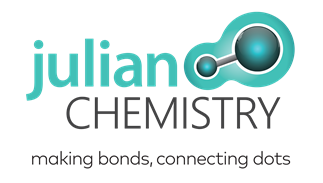The Power of Taking Effective Notes
How to Study for Organic Chemistry?
March 6, 2020
5 Ways to Stop Procrastinating and Start Focusing on Your Studies
August 24, 2020Should you be taking notes during class or giving the lesson your undivided attention while it’s unfolding?
There are no two opinions on the topic –note taking is one of the most essential practices for retaining and remembering crucial information long after the lesson is over.
In Junior College, you will be taking a deep dive into the world of chemistry. We take chemistry tuition seriously and we’re fully invested in ensuring the success of students. Advanced knowledge and thorough examination of key curriculum items can make it difficult to remember or internalise all of the information that’s coming your way.
To make the most of the JC experience, you will have to transform yourself into a note taking machine.
Luckily, the goal is easy to accomplish when you follow the right steps.
Why It’s So Important to Take Notes During Class
Every chemistry tutor in Singapore is committed to helping students acquire knowledge and ace exams. The process, however, is two-directional. Some effort will be required on your behalf to make the most of the learning opportunity and experience the full benefits of A-level chemistry tuition.
Tips and Strategies for Organised Note Taking
Students who know how to create organised, well-structured notes will remember 90 to 100 per cent of the information.
According to Cornell University Reading Centre director Dr. Walter Pauk, taking notes helps the brain retain the information being delivered in class. According to Pauk, those who don’t take notes in class will forget 60 percent of the information within two weeks.
Active notetaking during class is beneficial in several ways:
- It increases active engagement with the study material
- Active note creation optimises focus during class
- Students who take notes tend to have better levels of listening comprehension
- Structured notetaking makes it fairly easy to organise the information in a logical way
- It provides a condensed record that can always be used for reference purposes
- An easier study process at home
All of this sounds amazing but what’s the best strategy for active notetaking? Let’s examine some of the most popular approaches.
As with every other skill, there are various methodologies and approaches developed to make note creation easier.
You can experiment with several different strategies to discover the one that works best for you. Most students ace this process instinctively by doing what feels right.
If you need some additional assistance to optimise your skills, try some of the following suggestions.
Zoom in on the Essential Concepts
While listening to the lecture, try to note down the key concepts being presented to you. If particular terms are being used, and they know specific chemistry terminology will have to be utilised, note that down, as well.
When you have the structure of the lecture and the most important points recorded, you can flesh the notes out later on in your own words.
Try the Cornell Method
The Cornell method or Cornell Note Taking System is designed to make notes more readily usable when studying.
A systemic format is always used to structure the information better. The page is divided into three sectors – a cue column, a note-taking column right next to it and a summary area underneath.

Note-Taking Column
This is the main part of the page you’ll be using during class. Try to write down the main lecture points, as well as the key supporting details (like examples or formulas that you’ll need to remember the concept better later on). The aim of this column is to enable the comprehensive recording of the lecture so that you have all the essential data for review later on.
The Recall / Cue Column
Once you’re done with active notetaking during class, go to the cue column. It is usually narrower than the note-taking column and it’s used for words or short phrases that you can use as cues to trigger a specific idea.
Every note taker uses this area in a specific way. It can be used to write down little prompts or strategies for remembering things that the teacher shares and that are not included in the notebook. Some note takers could even write down questions they don’t know the answers to so these could be focused on during study sessions.
The Summary Area
The section summarises the key ideas discussed within the notes in one or two sentences. Writing a summary helps you sharpen both your comprehension and your analytical skills.
Mind Map Method

Mind mapping is another note taking methodology that many people find logical and usable.
It’s especially great for finding connections between things or different concepts being discussed. Mind mapping is particularly suitable for chemistry tuition that focuses on organic chemistry, for example.
In most instances, notes are taken in a linear way – you listen and you write down some version of the information that’s been shared with you.
Mind mapping is non-linear. You start from the centre of the page where you write down the topic of the lecture or the class. Individual ideas or phrases presented during the lecture are jotted down around this central theme, connected to it. Eventually, connections can also be established between the different elements on the page, as you start getting a better idea about how they’re connected to each other.
Here’s a simple example of a chemistry mindmap that illustrates the principle better. And here’s a more complex example that takes a look at organic chemistry.
When doing a mind map, you’re not limited to just writing phrases. You can also rely on colour-coding, diagrams and pictures (or simple icons) to ensure the proper retention of the information later on.
Notes don’t have to be laborious, boring and difficult to understand. It’s simply a matter of discovering what works best for you. Apart from the note creation methods mentioned here, there are various other methodologies you may want to experiment with. Charting, flow notes and even bullet journaling could work well for you.
Once you choose a methodology, stick with it. In time, you’ll notice your notetaking skills improving and you’ll find it much easier to draw connections or reach valid conclusions while you’re still in class.
These skills can be used to make even more of your Julian Chemistry learning experience. Find out more about A-level and O-level chemistry programmes or contact us now to have your questions answered.




